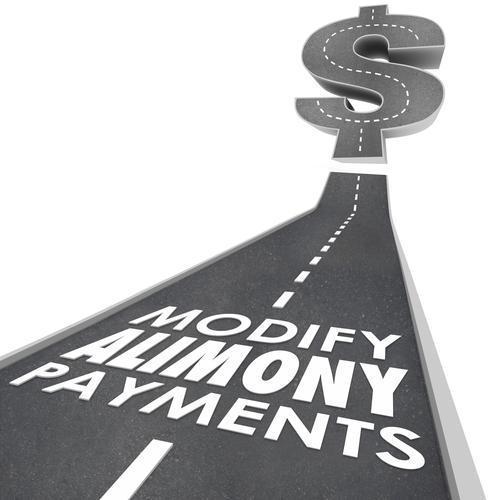Recent Blog Posts
Child Support Modification in Illinois
 So you have gone through all of the steps and jumped through all of the hoops to request and receive child support. But now you have a substantial change in your life, which will require a change in your child’s support. Though it is not impossible to make a modification to the child support orders, it can be a tedious process due to the requirements that need to be met before you can have the modifications granted.
So you have gone through all of the steps and jumped through all of the hoops to request and receive child support. But now you have a substantial change in your life, which will require a change in your child’s support. Though it is not impossible to make a modification to the child support orders, it can be a tedious process due to the requirements that need to be met before you can have the modifications granted.
Can I Ask for a Child Support Modification?
Once a child support order is issued, the non-custodial parent must pay child support until the child turns 18 or graduates from high school, whichever is later. Existing child support orders can go through the modification review process if:
- It has been at least three years since the establishment of the order or the last modification review;
Illinois Child Support Modification Requirements
 A common outcome of divorce when you have children and you are their primary caregiver is child support. Many families depend on these support payments each month from the other parent to ensure that the children are fed, clothed and have everything that they need. Once a child support order is entered, it cannot be modified or reviewed for at least three years -- unless there is a significant and substantial change in circumstances. A significant change in the family’s circumstances is actually the most common reason why a child support modification may be granted, although they can also be modified if the child support orders do not address healthcare for the child or if the child support orders deviate from the support guidelines.
A common outcome of divorce when you have children and you are their primary caregiver is child support. Many families depend on these support payments each month from the other parent to ensure that the children are fed, clothed and have everything that they need. Once a child support order is entered, it cannot be modified or reviewed for at least three years -- unless there is a significant and substantial change in circumstances. A significant change in the family’s circumstances is actually the most common reason why a child support modification may be granted, although they can also be modified if the child support orders do not address healthcare for the child or if the child support orders deviate from the support guidelines.
What Constitutes a Significant Change in Circumstances?
The Illinois Marriage and Dissolution of Marriage Act has guidelines for almost any issue that may arise during an Illinois divorce. In the section about child support, the Act defines what the courts would consider to be a significant change in circumstances. In Illinois child support modification cases, a significant change in circumstances can include:
How Child Support Is Calculated in Illinois
 Even though there has been a rise in alternative forms of co-parenting after a divorce, couples typically live in two different residences after they become divorced. Most of the time, children of divorced couples travel between the two parents’ houses according to the parenting time agreed upon by the couple. Illinois recognizes that the presence of both parents in a child’s life is important, which is why more and more couples are receiving equal or nearly equal parenting time. If one spouse has more parenting time than the other spouse, then the spouse with a lesser amount of parenting time will typically be responsible for making child support payments to the other spouse.
Even though there has been a rise in alternative forms of co-parenting after a divorce, couples typically live in two different residences after they become divorced. Most of the time, children of divorced couples travel between the two parents’ houses according to the parenting time agreed upon by the couple. Illinois recognizes that the presence of both parents in a child’s life is important, which is why more and more couples are receiving equal or nearly equal parenting time. If one spouse has more parenting time than the other spouse, then the spouse with a lesser amount of parenting time will typically be responsible for making child support payments to the other spouse.
Calculating Basic Support Obligations
The first step to calculating child support payments is finding each parent’s monthly gross income. Once the monthly gross income is figured, then the Gross to Net Income Conversion Table is used to figure out each parent’s monthly net income. Then, both parents’ monthly net incomes are added together and the corresponding value is taken from the Income Shares Schedule. The amount from the table is the basic amount of money that should be spent on the child each month for living expenses, food, clothing, and other basic needs.
Different Types of Maintenance in Illinois
 The history of alimony as a legal concept dates back centuries and has evolved greatly into its contemporary application. In modern day Illinois, alimony payments are determined by several differing factors. Therefore hiring a family law attorney to assist with these matters is essential to achieving the best possible outcomes.
The history of alimony as a legal concept dates back centuries and has evolved greatly into its contemporary application. In modern day Illinois, alimony payments are determined by several differing factors. Therefore hiring a family law attorney to assist with these matters is essential to achieving the best possible outcomes.
Alimony in Illinois is often referred to as maintenance, as opposed to the term “spousal support” which is favored in many other states. The definition of maintenance in Illinois family law is very literal and is intended to do exactly what the name suggests. Although there are a few different types of maintenance, the intention in Illinois is to ensure both parties “achieve a lifestyle comparable to that during marriage.”
Terminating an Alimony Order in Illinois
 Alimony, or spousal maintenance as it is called in Illinois, is monetary support paid one spouse by the other, to maintain roughly the same standard of living enjoyed during the marriage, after divorce. The court will rule in favor of maintenance in Illinois, according to the American Academy of Matrimonial Lawyers (AAML), depending on, among other things: the length of the marriage, disparity in earnings of the two partners, whether there are children, and if so, who will be the primary caretaker, and whether one spouse “has given up career opportunities due to the marriage.” Maintenance will not necessarily ensure that both partners can enjoy the same standard of living after the marriage, because living separately is, in most cases, significantly more expensive than living together.
Alimony, or spousal maintenance as it is called in Illinois, is monetary support paid one spouse by the other, to maintain roughly the same standard of living enjoyed during the marriage, after divorce. The court will rule in favor of maintenance in Illinois, according to the American Academy of Matrimonial Lawyers (AAML), depending on, among other things: the length of the marriage, disparity in earnings of the two partners, whether there are children, and if so, who will be the primary caretaker, and whether one spouse “has given up career opportunities due to the marriage.” Maintenance will not necessarily ensure that both partners can enjoy the same standard of living after the marriage, because living separately is, in most cases, significantly more expensive than living together.
Maintenance will be paid until the court decides it can be terminated. One major reason that an order for maintenance will terminate is if the party receiving the payments moves in with someone else. According to the AAML, the ex-spouse must be living with someone else on what is determined to be a “resident, continuing, conjugal basis.” This type of cohabitation, in regards to spousal maintenance, is currently a challenging aspect of family law, according to a recent report. The court must determine that the person receiving maintenance is in a “supportive relationship,” which can be tricky to legally prove.
Alimony Modification in Illinois
 As more women tend to work outside the home and lead independent lives outside of their husbands, the issue and necessity of alimony — or spousal support — has come into question in recent years. Many states have recently passed alimony reform laws; some abolish the practice of lifetime alimony payments, others make it more difficult for ex-spouses to prove the need for financial support. In Illinois, for example, ended lifetime alimony and passed legislation that ends alimony payments when the ex-spouse receiving alimony begins to cohabitate with a new partner. Other states, Massachusetts for example, caps the number of years or months during which alimony should be paid based on the duration of the marriage. According to Forbes, this is dangerous water to tread for many women facing divorce.
As more women tend to work outside the home and lead independent lives outside of their husbands, the issue and necessity of alimony — or spousal support — has come into question in recent years. Many states have recently passed alimony reform laws; some abolish the practice of lifetime alimony payments, others make it more difficult for ex-spouses to prove the need for financial support. In Illinois, for example, ended lifetime alimony and passed legislation that ends alimony payments when the ex-spouse receiving alimony begins to cohabitate with a new partner. Other states, Massachusetts for example, caps the number of years or months during which alimony should be paid based on the duration of the marriage. According to Forbes, this is dangerous water to tread for many women facing divorce.
How Do Illinois Courts Calculate Alimony?
 On Jan. 1, 2015, Illinois legislators passed new laws that govern the duration and amount of alimony payments. Many of the regulations apply to divorcing couples with a gross income of $250,000.
On Jan. 1, 2015, Illinois legislators passed new laws that govern the duration and amount of alimony payments. Many of the regulations apply to divorcing couples with a gross income of $250,000.
According to the revised law, “maintenance” is the new term for “alimony” in Illinois, but they both refer to spousal support. A judge determines whether to award maintenance based on 12 statutory factors.
Before January 2015, the calculation and duration were at the sole discretion of the judge. This led to noticeable variations from county to county, and from judge to judge. The legislation aimed to create uniformity in spousal support awards. The laws put the following formulas and guidelines into effect:
Formula for Calculating Alimony
Thirty percent of the payer’s gross income less 20 percent of the receiver’s income. The adjusted income of the receiver may not exceed 40 percent of the combined income of both parties.
New Law Requires Specific Findings in Spousal Support Proceedings
 With relatively significant changes regarding divorce and child custody going into effect this month, some of the smaller updates to the law may be going somewhat unnoticed. While some, such as new requirements for courts to enter the judgment within 60 days of the close of proofs, will have more of a procedural impact than substantive, others, such as those regarding spousal maintenance, can have an effect not only on the immediate order but on the potential for modification in the future.
With relatively significant changes regarding divorce and child custody going into effect this month, some of the smaller updates to the law may be going somewhat unnoticed. While some, such as new requirements for courts to enter the judgment within 60 days of the close of proofs, will have more of a procedural impact than substantive, others, such as those regarding spousal maintenance, can have an effect not only on the immediate order but on the potential for modification in the future.
Spousal Maintenance
In the state of Illinois, there is no presumed right to spousal maintenance in a divorce. Of course, a couple may negotiate a conscionable agreement regarding spousal support, and in such cases, the court will enter the agreement as an enforceable order. Absent an agreement, however, the court must examine the circumstances of the marriage and divorce in deciding whether or not such an award is appropriate. The court must take into account, among other factors:
Calculating Your Spousal Maintenance Responsibility
 If you are considering divorce, you may already be aware that spousal maintenance, or alimony, is not a guaranteed right for either spouse. Based on the circumstances of your marriage—and especially if you earn significantly more than your spouse, and he or she has been financially dependent on you—you may expect to be ordered to pay spousal support. You may even be quite willing to make maintenance payments as, even though you no longer wish to remain married, you do not need to see your soon-to-be ex-spouse suffer, particularly if the two of you have children together. While you may be expecting to pay alimony, it is often helpful to get an idea of just how much those payments will be and for how long.
If you are considering divorce, you may already be aware that spousal maintenance, or alimony, is not a guaranteed right for either spouse. Based on the circumstances of your marriage—and especially if you earn significantly more than your spouse, and he or she has been financially dependent on you—you may expect to be ordered to pay spousal support. You may even be quite willing to make maintenance payments as, even though you no longer wish to remain married, you do not need to see your soon-to-be ex-spouse suffer, particularly if the two of you have children together. While you may be expecting to pay alimony, it is often helpful to get an idea of just how much those payments will be and for how long.
Payment Amounts
Assuming the court agrees that spousal maintenance is needed based on the consideration of a number of factors, the law provides a method for calculating spousal support payments. The most common way is through a statutory formula intended to be used in the vast majority of cases in which the couple’s combined income is less than $250,000, and the paying spouse is not supporting children from a previous relationship or another former spouse. In such a case, the amount to be paid is found by taking 30 percent of the payor’s gross income and subtracting 20 percent of the recipient’s gross income. The amount paid as maintenance plus the recipient’s income may not exceed 40 percent of the couple’s combined income.
Spousal Maintenance When Your Ex Has a New Partner
 When you are required to pay alimony—also known as spousal maintenance under Illinois law—your payments are intended to help your former spouse alleviate some of the financial impact of the divorce. To a certain extent, maintenance is also used to help an economically disadvantaged spouse retain a semblance of the lifestyle the two of you enjoyed during your marriage. But, what happens when your spouse meets someone new? Could his or her new relationship affect your requirements for continuing spousal support payments?
When you are required to pay alimony—also known as spousal maintenance under Illinois law—your payments are intended to help your former spouse alleviate some of the financial impact of the divorce. To a certain extent, maintenance is also used to help an economically disadvantaged spouse retain a semblance of the lifestyle the two of you enjoyed during your marriage. But, what happens when your spouse meets someone new? Could his or her new relationship affect your requirements for continuing spousal support payments?
An order for spousal maintenance is typically set for a specific number of months or years. Alternatively, the payments may be ordered to continue on a permanent basis. “Permanent,” however, only means that there is no date set on which the order will be terminated. It does mean that the payments will continue forever no matter what. There are certain factors or occurrences that could allow you to stop paying maintenance to your ex-spouse despite a permanent award.









